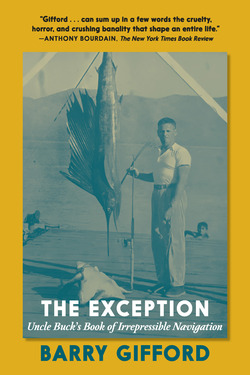American Falls is the first major collection of short stories from Barry Gifford, master of the dark side of the American reality.
These stories range widely in style and period, from the 1950s to the present, from absurdist exercises to romantic tales, from stories about childhood innocence to novellas of murder and revenge.
In the title story, a Japanese-American motel operator chooses not give up a total stranger, a black man wanted for murder, when the police come searching for him. In "Room 584, The Starr Hotel," a man rants his outrage at an amorous couple in the room next door before he himself is arrested for having committed multiple murders. "The Unspoken" recounts the confessions of a man without a mouth who tells about the woman who loved him. And in this collection’s longest fiction, a novella called "The Lonely and the Lost," a small town’s talented and colorful inhabitants solve their problems as best they can until it comes time for the devil to reap what they have sown.
Dark and light intermix in masterful chiaroscuro, dark becoming light, light revealing sinister or brooding complexity. No simple endings, only happy beginnings.
Introducing Three Cheers: a new feature on the Seven Stories Blog. In this feature, Seven Stories authors dish on three books that helped to mold them over the course of their careers. Check out Barry Gifford's choices below!
by Barry Gifford
Grande Sertao: Veredas (Translated into English as The Devil to Pay in the Backlands by Harriet de Onis). Certainly the greatest of all Portuguese language novels, a truly transformative novel; a unique, surprising narrative that rivals Don Quixote for creativity and meaning. Written by Joao Guimaraes Rosa, Brazilian professor and diplomat.
The Adventures & Misadventures of Maqroll the Gaviereo (Translated from Spanish by Edith Grossman) by Alvaro Mutis, a Colombian raised in Belgium and Colombia and Mexico, best friend of Gabriel Garcia Marquez, who called Mutis the finer writer. Marquez was correct: Mutis’s Maqroll novellas are the finest kind of literary adventures. A vastly underrated if not mostly unknown (in the English-speaking and -reading world) master of prose and poetry.
The Collected Novels of Jean Rhys Another mostly undervalued (and misinterpreted) writer. Her novels After Leaving Mr. Mackenzie and Good Morning, Midnight (quote from Emily Dickinson, I believe) are especially good. She did not waste words: taught me how to be concise and direct without sacrificing intent and meaning. Hated being taken up in 1960s and ‘70s by feminists—resented is better word. Once a mistress of Ford Madox Ford’s, she picked up on what the big guns of the ‘20s and ‘30s had to say (Hemingway, Conrad, Pound, et al) and in my opinion outdid them all—except maybe Conrad.



























